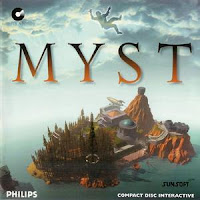A big thank you again to all the subject leaders who attended the March ICT Subject Leaders' meeting. From my perspective it was really useful to meet with so many subject leaders (42 in total!) and discuss how you are using ICT to support teaching and learning.
Please find a summary from the feedback questionnaire below.
Session | Question | Average score based on 35 responses. |
| 1 | Bristol Scheme of Work – An overview of the scheme of work focusing on how subject leaders can support planning and assessment in their school. | 4.5 |
| 2 | ICT + Literacy – Using ICT to enhance standards and enjoyment in literacy. | 4.8 |
| 3 | Websites/resources of the term - Sharing best practice. | 4.8 |
Scale 1 = I did not find this useful 5 = I found this extremely useful
Things you found useful:
- having a subject leaders' blog is very useful as it provided an area where we could check for updated information and share our own planning/practice.
- publishing the agenda before the meeting was very useful.
- using an online booking form was very convenient.
- having all meeting dates for the year published at the end of term 1 enabled teachers to give their SMT more notice which increased the likeliness of them being able to attend the meeting.
- publishing all notes on the blog enabled subject leaders who were unable to attend to view information.
- publishing notes using Google Docs enabled subject leaders to easily share information with other teachers.
- The shared planning area was useful as it enabled subject leaders to see examples of best practice.
- being given time to plan with other subject leaders was useful.
- having the opportunity to meet with other subject leaders.
Areas you would like to focus on during the next Subject Leaders' Meeting.
- AST to model how to plan a lesson using the Bristol Scheme of Work.
- examples of how to use assessment tools in relation to the Bristol Scheme of Work.
Share ideas/resources section:
It would be very useful if you could e-mail me any ICT planning so that I can add it to the shared planning area on the blog. (e-mail planning to chris.unsworth@bristol.gov.uk)
If anyone would like to write a post to share how they are using ICT to support teaching and learning in their school then please e-mail me and I will provide you with a contributor account.
AST Outreach Support
If you would like to request AST outreach support then please complete the form below and send it to kate.rick@bristol.gov.uk
A member of the senior management must complete this request.
I look forward to meeting/working with you soon.
Best wishes
Chris
All comments posted are welcomed.
Summer Term ICT Subject Leaders' Meeting-: Thursday 21st June 2012, Time: 9:30 - 3:30
Rebecca's excellent presentation.




